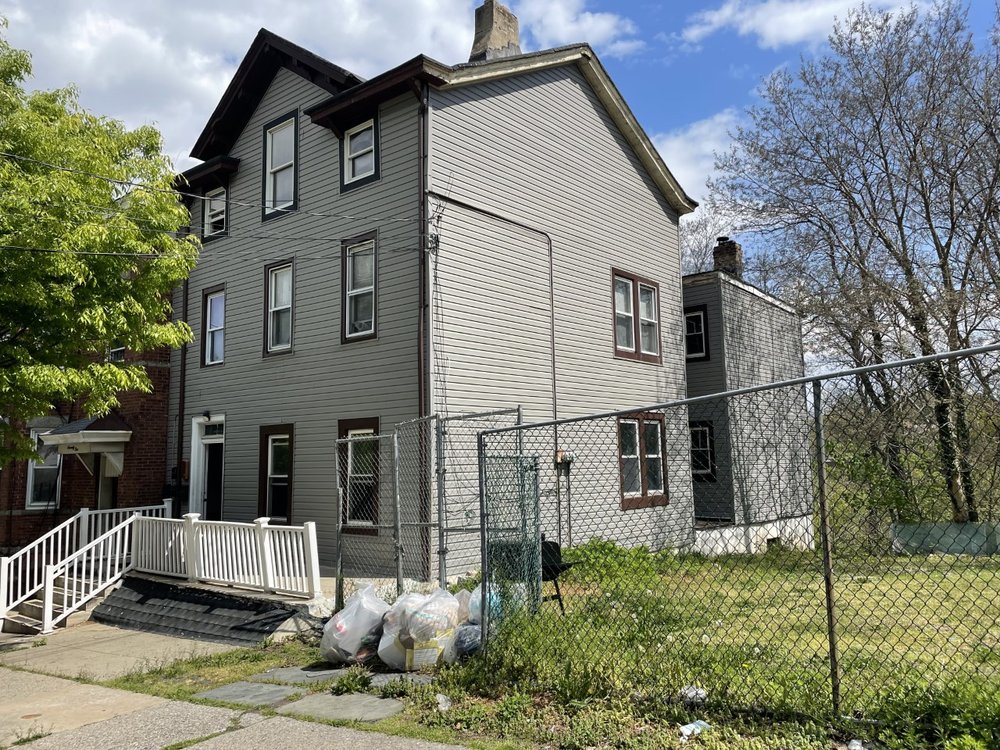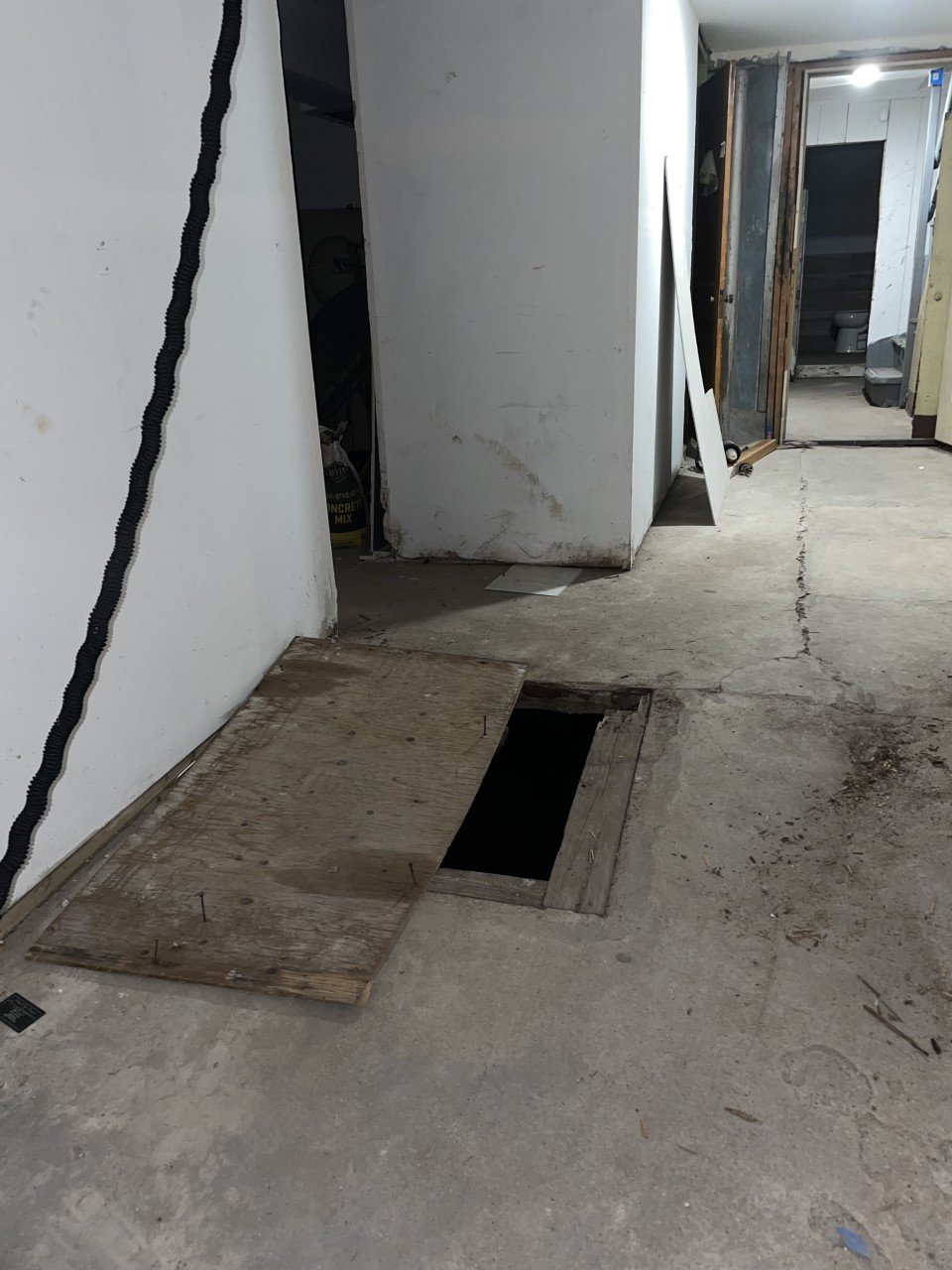She called NYPD about domestic violence for years. They found her dead in a basement.
May 5, 2023, 6:01 a.m.
Dora Howell was found shot in the chest and buried in a Staten Island home in April, months after she was a plaintiff before the state’s highest court, where she was suing the city for failing to protect her from domestic violence.

Months before Dora Howell was found shot in the chest and buried in a Staten Island home in April, she was a plaintiff before the state’s highest court, where she was suing the city for failing to protect her from domestic violence.
The police are investigating the circumstances behind the death of Howell, 43, and have not named any suspects, but her violent end and accounts of her abuse paint a portrait of a woman who was repeatedly failed by the city’s criminal justice system.
Howell’s lawsuit, first filed in 2011, describes in painstaking detail the abuse she suffered at the hands of an ex-boyfriend in 2008. She alleged that police officers responding to the scene violated the Domestic Violence Intervention Act by not arresting the man, against whom Howell had eight orders of protection, according to court records.
The ex-boyfriend, Andre Gaskin, has not been named as a suspect in Howell’s murder and there is nothing to connect him to the crime, according to the little information the NYPD has provided about its investigation. Gaskin was eventually charged with assault and criminal contempt for violating the orders of protection.
But the case depicts a woman who continued to suffer from the ripple effects of domestic violence and was let down by the people sworn to protect her. It made its way through the legal system and eventually reached the state’s Court of Appeals in October 2022.
Months later, Howell was dead, identified in part by the scars she still bore from her abuse, according to her lawyer.
Police responding to a tip discovered her remains on April 3, under the basement of a house on York Avenue on Staten Island.
SI Live reported that Howell’s body had been buried in a crawl space below the home’s basement and was sniffed out by NYPD K-9 dogs, according to police sources. It is still unclear exactly when she died.
Howell’s lawsuit claims that Gaskin began abusing her back in 2008, when she was pregnant with their child and living a floor below him in a building in Brooklyn. The first time he assaulted her, the lawsuit states that he “threw her on the floor and kicked her stomach, causing her to bleed and require hospitalization.”
In response to that incident, Howell filed an order of protection against Gaskin. But in October and November 2008, Howell called the police nine times, according to her lawsuit, to say that Gaskin was violating that order by contacting her, showing up at her door and assaulting her. Each time, the responding officers asked her to show them the document proving that she had the order of protection, and said they would “remove Mr. Gaskin from the premises.”
But Gaskin was allowed to stay in his apartment, which was so close to Howell’s that it made crossing paths with her easy. The lawsuit states that one night, he used a metal pipe to bang on Howell’s door, breaking the lock in an attempt to force his way inside. When the officers arrived, they still did not arrest him.

Instead, they asked questions — “Why don’t you move? Why don’t you go stay somewhere else if this keeps happening?”— and made demands, saying they’d arrest Howell if she called again, the lawsuit details.
Weeks later, Gaskin dragged Howell by her hair up the stairs and into his apartment. There, he physically assaulted her, and when she went to the window to yell for police to help, Gaskin said, “‘You want help? I’ll send you for help,’” before throwing her outside.
As Howell lay injured on the pavement below, the same two officers responded to the scene and told her that she “should have listened” to them, according to the lawsuit. Her knee, pelvis and hip were broken, and her spine was fractured. She stayed in the hospital for over a month, undergoing multiple surgeries.
In August 2009, Gaskin was arrested for the assault and for his violations of the orders of protection. He pleaded guilty to charges of assault and criminal contempt in April 2010, court records show, and spent almost five years in prison.
He was released in 2014, and wrote a blog post about his life after prison on HuffPost’s now-closed platform for formerly incarcerated individuals. Through the Center for Employment Opportunities, he was able to get construction training that led to a masonry job, according to the post. Gaskin did not respond to multiple requests for comment.
Meanwhile, Howell still struggled, according to people who knew her.
In 2012, she was living in a homeless shelter in Manhattan. It was there that she met Raneisha Durham, who said that Howell gave her guidance and support despite her own issues.
“To be honest, she was one of the reasons why I was able to leave the shelter and get an apartment, ‘cause I was real young when I met her. But you could tell, she was going through her own things,” Durham said.
In the years leading up to her death, Howell had been living in a third-floor apartment on Carlisle Place in the Bronx neighborhood of Williamsbridge. She had moved in to care for a sick friend, according to Rudolph Christmas, the landlord.
When that tenant died of cancer, Howell stayed for a while, since the pandemic was in full swing, Christmas said. She sometimes invited other people to stay with her in that apartment, and a neighbor who wished to remain anonymous, citing fears over repercussions in her personal life, said that Howell was a disruptive presence. In the fall of 2022, Christmas filed a court order to evict her and the other individuals who were staying with her in the apartment at the time.
By then, Howell’s lawsuit against the city was coming to the end of its run in the New York Court of Appeals. A panel of judges determined she was not owed any “special duty” by the officers she called to defend her from Gaskin.
“She was upset,” said attorney Gary Rawlins, whose firm represented Howell in the case. “She felt like she did what she was supposed to do, and she felt that the people that she called to protect her didn’t.”
One day in late November, Howell left her Bronx apartment. It seemed as if she’d come back, but she didn’t.
“I knew it was real suspicious the way she left, because she left all her stuff. She loved to change her clothes and stuff. And she didn’t come home, and that was real different. She just disappeared,” said the same neighbor.
They lived in a small building where the neighbor would have noticed her comings and goings.
“She had been missing for, I want to say, maybe two months. Nobody came and looked for her. Nobody. Not a family member, not a friend, nobody. I started being concerned about her, because it’s a woman, at the end of the day,” the neighbor added.
Rawlins, who said he was normally in touch with Howell, also became concerned when he couldn’t reach her. He said he filed a missing persons report around the holidays.
Christmas said he’d heard a rumor that Howell had headed to a funeral in New Jersey. It’s unclear if she ever arrived, or where she headed next.
The next time they heard about her was when her remains were discovered.

“I feel like the system has failed her,” said Durham, who found out about her friend’s death through news reports. “Somebody has to pay for it, answer for it. Because if these cops take these things a little bit more serious … they can avoid things like this.”
Rawlins said that Howell may have had as many as seven children, some still minors.
Howell’s oldest daughter, Chantal Torres, 26, lives with her father, who had an earlier relationship with Howell. Torres had no idea her mom had died, or that she’d tried to sue the city. The last time they saw each other was at least five years ago.
“I’m just really shocked. But I didn't really know her, so I really have nothing to say,” Torres told Gothamist by phone.
According to Gov. Kathy Hochul’s office, more than 195,000 domestic violence orders of protection were issued in New York state in 2021, an 18% increase from 2020. Data for 2022 is not yet available.
In a dissenting opinion from the Court of Appeals decision on Howell’s lawsuit, Judge Rowan Wilson — now the state's top judge — wrote that the officers’ “actions and inactions rendered Ms. Howell’s multiple orders of protection meaningless, constituting both a dereliction of their duties and an affront to the courts.”
“This is that odd case where a person follows the instructions of the police officer and it doesn’t work out for them, right? She did what the police told her, and was hurt,” Rawlins said. “I think that’s what was so frustrating for her.”